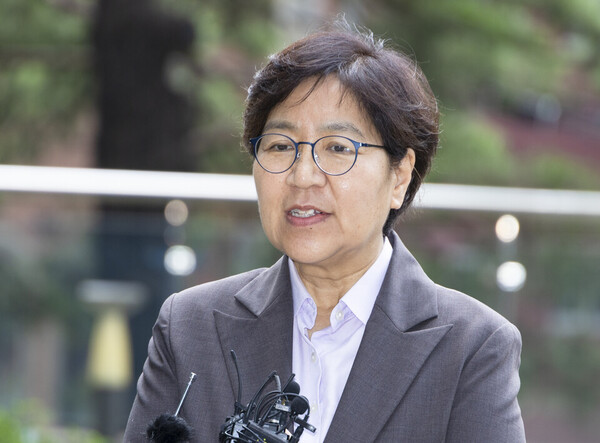Jeong Eun-kyeong, nominee for health and welfare minister, said she would fully collect opinions on President Lee Jae Myung's pledge to establish public medical schools. “I agree that a sustainable system is needed to train public sector professionals,” Jeong said.
She also stated that structural reforms must continue to normalize the imbalanced healthcare system, which has led to a shortage of personnel in the essential medical field.

In the materials submitted to the National Assembly ahead of her confirmation hearing on Friday, Jeong made these and other remarks in response to a question about her stance on establishing public medical schools, citing a “chronic shortage of specialized personnel in regional, essential, and public medical areas.”
“We will discuss establishing public medical schools through dialogue after fully collecting opinions from the public, academia, and the field,” Jeong said.
While campaigning, President Lee promised to establish one public medical school each in Incheon, North Jeolla Province, and South Jeolla Province, as well as one private medical school in North Gyeongsang Province.
Jeong cited an unfair compensation system, a high risk of medical errors, and a distorted medical delivery system as the reasons for the shortage of essential medical personnel, stating that structural reforms are necessary to address the problem.
“I know that the government has implemented major tasks to expand medical personnel, improve the fairness of the compensation system for essential medical care, strengthen regional medical care, and establish a safety net for medical accidents to revive essential medical care,” Jeong said. “It is necessary to continue structural reforms to normalize the distorted medical system.”
“I will discuss with experts, including the departmental estimates of the Physician Supply and Demand Estimation Committee, and promote reforms based on cooperation through communication and trust restoration between the public, the medical community, and the government,” Jeong said.
Regarding the regional doctor system, Jeong said that as there are various opinions on the issues, she would push for it based on social consensus.
“Everyone will agree on the direction of strengthening regional, essential, and public healthcare,” Jeong said. “However, as there are various opinions on the regional doctor system, it is necessary to promote the reform based on social consensus through discussions with relevant organizations, including the medical community, the public, and experts.
Related articles
- President Lee urges action to bring med students back this fall
- Health ministry officials welcome Jeong as new leadership takes shape
- Pediatricians pin hopes on new health minister to rebuild child healthcare
- Ex-KDCA chief tapped as health minister amid doctor-government standoff
- Public interest grows over who will be the next health minister
- [Reporter's Notebook] Health Minister Jeong should show ‘communication and harmony’
- New health minister Jeong committed to easing rare disease patients’ financial burden
- Medical students' parents blast schools for forcing 'written oath' on returnees
- Education minister nominee to swiftly push for a medical school in South Jeolla Province

